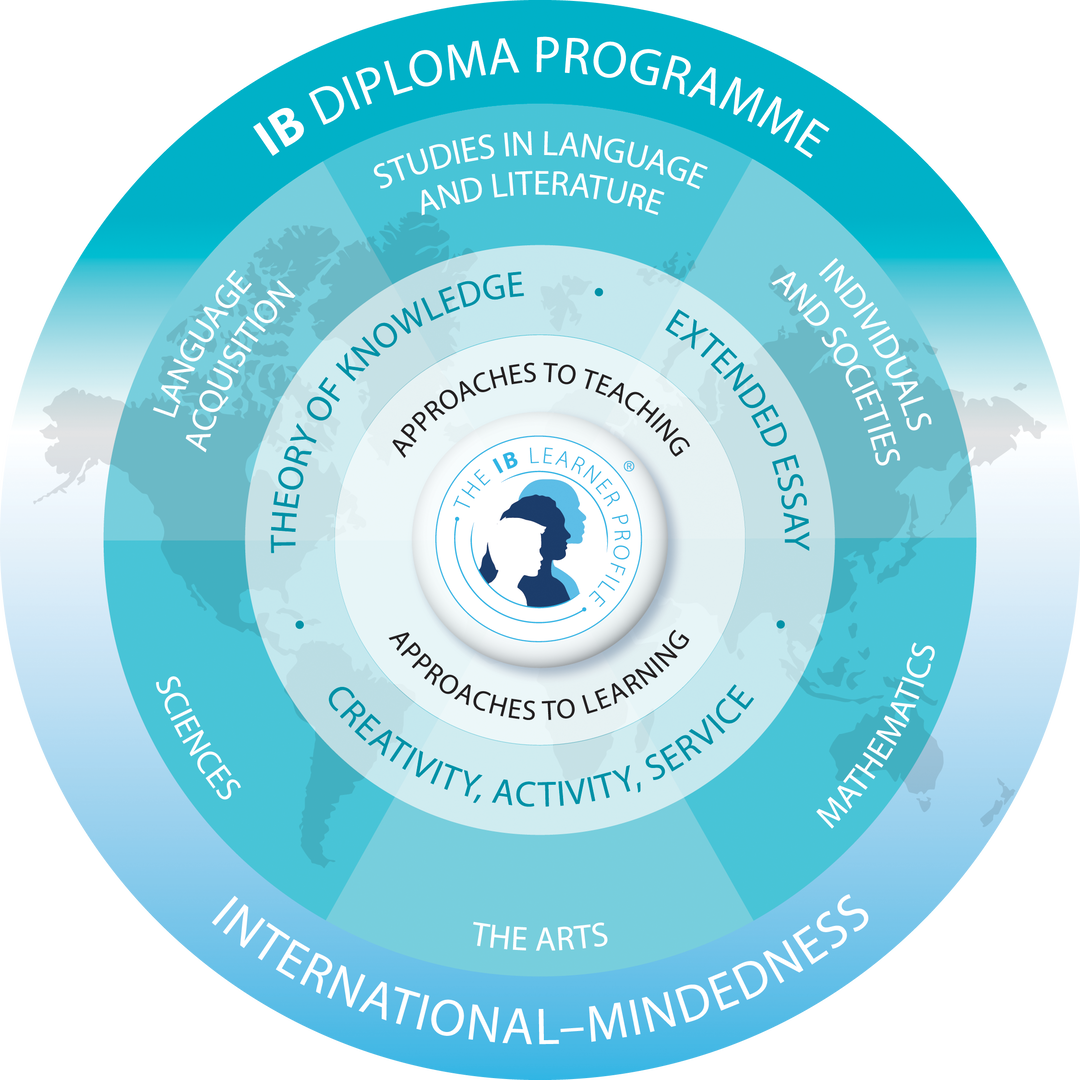For a list of subjects that are taught at ISHilversum, click here.
For a list of subjects that are taught at ISHilversum, click here.

Diploma candidates are required to select one subject from each of the first five subject groups and a sixth choice from any of the six groups. Three are taken at Higher Level (HL), the others at Standard Level (SL). HL courses represent 240 contact teaching hours; SL courses cover at least 150 hours. By arranging work in this fashion, students are able to explore some subjects in depth and some more broadly over the two-year period; this is a deliberate compromise between the early specialisation preferred in some national systems and the breadth found in others. Curriculum requirements ensure that the science-oriented student is challenged to learn a foreign language and that the natural linguist becomes familiar with laboratory procedures. While overall balance is maintained, flexibility in choosing Higher Level concentrations allows the student to pursue areas of personal interest and to meet special requirements for university entrance.
Only schools authorised by the International Baccalaureate Organisation are eligible to teach the curriculum and to register candidates for examination. IB Diploma candidates must be students in good standing at an authorised member school. Current IB membership includes nearly 2,500 school in 143 countries, with 138,000 candidates registered for the May 2014 Diploma exams. To become an IB Diploma school requires a vigorous application process and the submission of written documentation to IB headquarters recently re-located to The Netherlands. Schools are regularly inspected by teams of visitors, ensuring the programme is delivered to the highest standards.
While an overall balance is maintained, a focus on three Higher Level subjects allows the student to pursue areas of personal interest and meet the special requirements neceessary for university entrance. In addition to the study of six subjects, students also follow a Theory of Knowledge course, submit an extended essay and participate in the CAS programme (creativity, action and service activities).